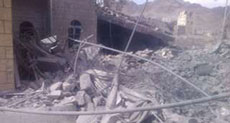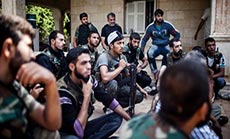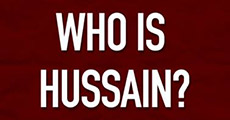
Nuclear Deal Looms in Lausanne
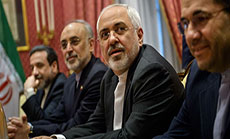
Local Editor
A nuclear deal between Iran and world powers is "doable," Tehran's lead negotiator said in crunch talks in Switzerland on Sunday, with "two or three" issues still to be resolved.
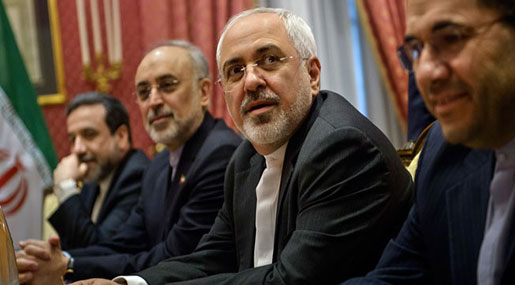
Abbas Araqchi however ruled out sending Iran's nuclear stocks abroad, a key demand of world powers, while insisting that all UN Security Council resolutions and sanctions must be lifted.
"Getting to an accord is doable. Solutions have been found for numerous questions. We are still working on two or three issues... The talks are in their final phase and are very difficult," Abbas told reporters in Lausanne.
He further stated: "We are optimistic, the chances of getting a deal are there. But this requires the other side taking the necessary decisions and demonstrating their political will."
But he added: "The export of stocks of enriched uranium is not in our program and we do not intend sending them abroad.... There is no question of sending the stocks abroad."
Sending abroad Iran's stockpiles of low-enriched uranium, currently enough for several nuclear weapons if further processed, would make any push by Iran to get the nuclear weapons much more difficult.
This, combined with slashing the number of uranium enrichment centrifuge machines, would extend the so-called "breakout" time needed by Iran to assemble enough fissile material for a bomb.
Iran denies wanting nuclear weapons, and Araqchi reiterated Sunday, two days before a deadline to agree the contours of a deal, that Tehran wanted sanctions lifted under any accord "under a precise program."
"All the sanctions have to be lifted -- those of the EU, the United States and the UN Security Council. There are six [UN Security Council] resolutions that have to be annulled," Araqchi said.
Earlier on Sunday, Western diplomats said Iran and world powers had reached tentative agreement on parts of a deal sharply curtailing Tehran's nuclear program, while cautioning that the deal is by no means done.
As negotiators raced against the clock in a rainy Switzerland, in "Israel" Prime Minister Benjamin Netanyahu launched a blistering attack on the "dangerous" accord that may be emerging.
One Western diplomat said Iran had "more or less" agreed to slash the number of its centrifuge machines by more than two-thirds and to ship abroad most of its stockpile of nuclear material.
A senior Iranian negotiator denied any such thing, saying any such claims were aimed at "disturbing" the talks.
"No deal has been reached, and the remaining issues have to be resolved," the Iranian official said.
But at the same time Iranian officials have expressed guarded optimism that after 18 months of tortuous negotiations and two missed deadlines, a breakthrough might be in sight for a deal ending 12 years of tensions.
"If we manage to resolve all the remaining issues today or in the next two to three days, then we can begin to draw up a text. But for the moment we are still in discussions," a source close to the Iranian delegation said Sunday.
In Lausanne, US Secretary of State John Kerry canceled plans to leave for an event in Boston on Monday in order to keep negotiating, the State Department said.
"It's going all right. We're working," Kerry said Sunday during a break from talks with Iranian Foreign Minister Mohammad Javad Zarif at a luxury hotel in the Swiss town.
His French and German counterparts, Laurent Fabius and Frank-Walter Steinmeier, also scrapped plans to go to Kazakhstan, diplomats said. Steinmeier said Saturday talks were in the "endgame."
Chinese Foreign Minister Wang Yi arrived on Sunday morning. Russian and British top diplomats Sergei Lavrov and Philip Hammond were expected later, completing the line-up of foreign ministers.
The aim is to agree broad outlines for an accord by Tuesday's midnight deadline, and then flesh out a series of complex annexes containing all the technical details by June 30.
Source: News Agencies, Edited by website team
